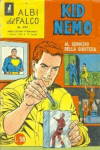View unanswered posts | View active topics
| Author |
Message |
|
Ocean Doot
|
Post subject: Why I Love (and STILL love) Superman the Movie  Posted: Posted: Sun Dec 16, 2018 3:47 am |
|
 |
|
Dendritic Oscillating Ontological Tesseract
|
| Joined: | 25 Oct 2007 |
| Posts: | 50984 |
| Location: | Milwaukee |
|
|
When the movie came out, Action Comics #1 was 40 years ago.
Trippy, no?
|
|
| Top |
|
 |
|
Ocean Doot
|
Post subject: Why I Love (and STILL love) Superman the Movie  Posted: Posted: Sun Dec 16, 2018 3:50 am |
|
 |
|
Dendritic Oscillating Ontological Tesseract
|
| Joined: | 25 Oct 2007 |
| Posts: | 50984 |
| Location: | Milwaukee |
|
|
I started to read the long article, but then he said "I much prefer Zack Snyder's" and I stopped.
|
|
| Top |
|
 |
|
Marcus
|
Post subject: Why I Love (and STILL love) Superman the Movie  Posted: Posted: Sun Dec 16, 2018 2:28 pm |
|
| Joined: | 27 Nov 2004 |
| Posts: | 44599 |
| Location: | Now in CHARLOTTE, NC!! |
| Bannings: | 1 |
|
|
| Top |
|
 |
|
Beachy
|
Post subject: Why I Love (and STILL love) Superman the Movie  Posted: Posted: Sun Dec 16, 2018 4:43 pm |
|
 |
|
Mr. IMWANKO
|
| Joined: | 18 Sep 2005 |
| Posts: | 73838 |
| Location: | the Moist Periphery of Pendulum Tide |
|
|
| Top |
|
 |
|
Simon
|
Post subject: Why I Love (and STILL love) Superman the Movie  Posted: Posted: Mon Dec 17, 2018 10:05 am |
|
 |
|
...
|
| Joined: | 26 Oct 2006 |
| Posts: | 59397 |
|
Linda wrote: What does IMWAN think of this analysis? Quote: Why 'Superman' Is So Hard to Leave in the Past
It’s now easy to believe a man can fly. It wasn’t in 1978, but today, in midst of an explosion of superhero movies, it’s a belief we give into with relative ease. Flight is most often the bare minimum of what we expect from heroes and villains who can perform any feat limited only by the human imagination. It’s not simply special effects that permit our belief, but rather an overall acceptance that these costume-clad characters are a defining part of our culture, modern myths at their best and populist cinematic staples akin to the 20th century western at their lowest form. There have been a record nine theatrically released superhero movies based on comic books this year alone, each claiming a major piece of the global box office. That doesn’t appear to be changing any time soon, maybe not ever. Superhero movies are here to stay. But there was a time when there were none. And then in 1978 there was one.
Forty years ago on Dec. 15, 1978, Richard Donner not only made audiences believe a man could fly, but proved that superheroes could have just as much appeal for adults as they did for children. Superman pulled back the curtain, quite literally at the film’s start, to reveal a story that proved to be just as monumental a cinematic culture shift as Jaws (1975) and Star Wars (1977). Superman was nominated for three Academy Awards and received a Special Achievement Oscar for Visual Effects. It was inducted into the Library of Congress’ National Film Registry in 2017. Yet, these accolades barely scratch the surface when it comes to trying to see the whole scope of Superman’s impact. Even if we disagree over whether or not Superman is the best superhero movie ever made, or even the best Superman movie, it’s undeniable that Donner created a special film that, for both good and ill, has remained the most recognizable template of the superhero movie and Superman today.
From Christopher Nolan to Patty Jenkins, Superman has been cited as the gold standard. But getting from Superman to The Dark Knight (2008) and Wonder Woman (2017) is no small leap. What is it about Superman that has resonated with filmmakers, critics, and audiences across all these years? No other iteration of Superman, not those with Christopher Reeve reprising his role, not Bryan Singer’s stiff footstep-following sequel/reboot, nor Zack Snyder’s ambitious contemporary consideration of alien godhood, have managed to have the same hold the same collective adoration as the film that first allowed us to see Superman on the big screen. I’ll be honest upfront and say that Donner’s Superman is not my favorite take on the character and I much prefer Zack Snyder’s examination of the character in Man of Steel (2013) and Batman v Superman: Dawn of Justice (2016). But there’s no denying the greatness of Donner’s film and its incredible legacy. So in recognizing the fact that it might not be my favorite interpretation, I feel compelled to ask why Donner’s Superman is that favorite interpretation for so many. Perhaps it’s because it was the first of its kind, or because the film says something deeper about our need for heroes to be shown in a certain light.
Superman opens in black and white with stage curtains, which pull back to reveal the year 1938 and a child narrating the events of Action Comics, before the film leaps off to space and John Williams’ iconic score plays over the opening credits. It’s as if the film is saying this is the Superman you knew 40 years ago, now let’s introduce you to the Superman of today. Immediately this grand gesture is suggestive of The Wizard of Oz (1939), letting audiences in on the secret that they are in for an event. It seems safe to assume that as soon as audiences were taken to Krypton, they became aware that this was not like the Superman serials or George Reeve TV show of their youth. This was a full-scale epic in the vein of Gone with the Wind (1939), Ben-Hur (1959), and Spartacus (1960). Superman may have been recognizable to audiences as a DC comic book character created by Jerry Siegel and Joe Shuster, but the movie treats him like both a character out of a sweeping romance and a biblical figure. This isn’t exactly a surprise given that The Godfather’s Mario Puzo conceived the story. As much as Puzo and Francis Ford Coppola mythologized La Cosa Nostra to tell an expansive story of fathers and sons in The Godfather (1972) and The Godfather Part II (1974), Puzo and Donner make a similar consideration of comic book characters here.
While there’s a lot to be said about the lightness of Superman as a whole, the film is really comprised of three distinct parts that are tonally unique – Krypton, Smallville, Metropolis, each one holding the key to unlocking the fortress of camaraderie that is Superman. Once the triumphant opening score dies down and we’re taken to Krypton, the film becomes immediately broody and foreboding. Krypton is inherently alien, it’s everything we wouldn’t expect from the birthplace of the world’s biggest boy scout. Krypton is majestic but it’s also off, emotionally detached. It’s not simply Marlon Brando’s stiff line reading as Jor-El that highlights this point, but the fact that Superman begins with the ending of a trial in which we watch the passionate faces of criminals Zod, Non, and Ursa sentenced to an “eternal living death” in the Phantom Zone by a passionless jury.
The white crystalline structure of Kryptonian dwellings and technology further suggest this lack of passion. This artful production design by the legendary John Barry (Star Wars, A Clockwork Orange) suggests homogeny, an artless culture whose speech patterns, personalities, and white clothing are almost indistinct from their surroundings. We’ve seen this crystalline approach to Superman’s homeworld in almost every adaptation since. From comic books, Smallville (2001-2011), Superman Returns (2006), and even as recently as last week’s episode of Supergirl. They’ve all adhered closely to Barry’s design. But they’ve never had quite the same effect, because Superman uses it not simply for design but for narrative and thematic purposes. All of these aspects of Krypton in the opening scenes create a heavenly sense, not Heaven as any Biblical story has led us to imagine, but a heaven we’re cut off from, that we find strange, and nearly hellish in the glow of the dying red sun.
Much controversy has been made over recent years about Superman as a Christ figure, something that has become a central reference in both modern comics and Snyder’s films. The point of contention has been that creators Siegel and Shuster were Jewish, and if Superman is any religious allegory then surely he is Moses. But Puzo and Donner make no effort to hide the fact that Superman, in this iteration, is an approximation of Jesus. Jor-El through his line, “the son becomes the father, and the father becomes the son” clearly establishes himself and his son as, for all intents and purposes, God. Jor-El’s failure to save Krypton, and death, represent the destruction of the Old Testament and the birth of the New. It’s important to recognize that Kal-El isn’t simply sent to Earth because of its proximity to Krypton, but because Jor-El knows he’ll be powerful there. Kal-El is trained to rise on Earth, and his father’s recorded messages in his spacecraft prepare him for his godhood and his potential to make Earth a heaven. Superman was released only 12 years after the famous 1966 Time article that asked “Is God Dead?” Superman, as part of the '70s and all its New Age belief systems and social changes, declared that he was not. God was very much alive in the realm of popular culture.
Smallville sets another important stage for Superman’s becoming. If Krypton cements his godhood, then Smallville cements his manhood. Though brief, our time in Smallville contains some of the film’s finest moments. There’s an earnestness in which Jeff East portrays the teenage Clark Kent as he cycles through his feelings of being an outsider, the joy of racing against a speeding train, and the grief he experiences at the death of his father Jonathan (Glenn Ford), all in a matter of minutes. Donner captures Americana perfectly, blending stylistic elements of Norman Rockwell’s Sunday Post illustrations, Terrence Malick’s Badlands (1973) and John Ford’s The Searchers (1956). It’s the America we wished existed at the time, a comic book frame of wide open spaces and the promise of manifest destiny. The finest moment in Donner’s movie is that in which young Clark hugs his mother Martha (Phyllis Thaxter) goodbye, pulls away, and then hugs her again before leaving home. It’s a moment of human warmth that works in complete opposition to almost everything we saw on Krypton. It’s a moment that stirs us in its emotional honesty, and when critics talk about the need for moments of truth and reality amidst all the special effects of the modern superhero movie, it is surely this moment they have in mind.
If there’s any fault in first act, it’s that the transition from Clark to Superman takes place in an exposition dump from Jor-El in which he lets Clark in on the history of the universe over a twelve year period. It’s this leap from boy to man that inspired 10 seasons of Smallville in which that oversight was rectified by Clark learning through experience. It’s interesting because most of our contemporary superhero films and series play the long game, not letting our heroes truly become the heroes we recognize them as until the end. Batman hadn’t amassed all of his traits and relationships until the end of Batman Begins (2006), Tony Stark wasn’t a fully functional superhero until the end of Iron Man (2008). It took four seasons for Oliver Queen to take up the name Green Arrow on Arrow. And even Zack Snyder’s Superman was in for a now-scrapped five-film arc that would’ve fully transformed him into the leader he’s been depicted as in the comics for so long. But Superman gives us that transformation almost immediately, so that for most of the film, Superman is the Superman we recognize. He may learn some lessons in humility and defy his father along the way, but he is unbreakable in his convictions – a man of steel. This point in the Fortress of Solitude is where the film divides, and what comes after begins to feel like more of its own thing in terms of tone and theme. But perhaps that immediacy of Superman was something we needed, maybe still need, in order to give us a constant figure we could look to as a hero. But Donner’s Superman isn’t just a hero. He’s a father figure who knows the right answer and the right thing to do at every turn.
Now we get to the Christopher Reeve of it all. Beyond anything, Reeve is the central reason why Superman has resonated for such a long time. Reeve is not only transcendent as Superman, but also as Clark Kent. More important than making audiences believe a man could fly is how Reeve manages to make us believe that Clark and Superman actually are two different people and could be seen by the rest of the world as such too. His depiction of Clark isn’t just glasses and speaking in a higher register. He’s his own distinct character, complete with all of these little tics, speech patterns, and a change in posture that to this day remain not only one of the most impressive feats in portraying a comic book character, but in portraying any character. Even though the film denies us a good 12 years of the character’s journey, when Reeve emerges as Clark Kent/Superman, we immediately gravitate towards him. We trust him completely. And because of this, Superman’s greatest narrative strength is its romance. For an adaptation of a character born in Action Comics, Superman isn’t a particularly action-packed film. He saves people, stops robberies and natural disasters, but he doesn’t fight. That would come later in Superman II (1980). Modern superhero films so often contain a multitude of battles that critics claim are repetitive, or 3rd act showdowns mislabeled as weak links ala Wonder Woman. It seems often that critics with Superman on their minds wish superhero movies hinged on something other than action and the showdown against the big bad. In Superman this was achieved through the hero’s romance with the feisty Lois Lane (Margot Kidder).
Just as Reeve would influence every depiction of Superman going forward, such was Kidder’s influence on Lois. While she never escaped her comic book counterpart’s early position as a damsel in distress, she proved to be capable, strong-willed, and romantic, but not of the foolish sort that the comics of the previous decades had often depicted her as. Kidder’s Lois Lane feels like a real human being, right down to her spelling mistakes. It was easy to see why Superman, so interested in feeling human, would be drawn to Lois’ endearingly flawed humanity. We learned to love Superman, be it as father-figure, best friend, or romantic fantasy through Lois. It’s not the helicopter save scene, notable as it is, that truly showcases the best of Lois and Superman. It’s the rooftop scene, which perfectly balances humor, sexual tension, and genuine intrigue.
Sam Raimi would later play homage to these elements across his Spider-Man films, making them just as much about the developing love story between Peter Parker and Mary Jane Watson as it was about action-packed power and responsibility. Donner achieves this romance simply and elegantly, so much so that we rarely give credibility to the complaint that Lois and Superman fell in love with each other over the course of a night. If Clark’s goodbye to his mother is the film’s best moment, then this is surely the film’s best scene, and arguably for the same reason. It feels genuine. When Superman tells Lois Lane that he never lies, we believe him. We believe everything about their exchange. It’s the film’s romance, something Patty Jenkins was so clearly inspired by while crafting Wonder Woman, that allows the latter moments of superheroics to work. There’s a beating heart behind all of those special effects-enabled flights and feats of strength. For as much as filmmakers discuss the grounding of modern superhero films, it’s rarely discussed correctly. It’s not so much abiding to rules of science that interest audiences, or even the plausibility of narrative. It’s the emotional grounding that keeps our minds steady even as our hearts soar with flights of fancy.
Once we’re situated in Metropolis, Superman is a balancing act between real-world emotions and cartoony plot mechanics. Lex Luthor (Gene Hackman), along with his sidekicks Otis (Ned Beatty) and Eve Tessmacher (Valerine Perrine) are easily the least grounded aspects of the film. All three actors give delightful performances, with Hackman relishing in being the smartest person in the room, but it’s clear that Donner was less interested in the villain than the hero. Tim Burton would later turn this concept on its head when his Batman (1989) and Batman Returns (1992) obviously showed more interest in the dark channels of villainy than heroism. Raimi and Nolan found a balance between exploring heroes and villains, while the majority of the films in the Marvel Cinematic Universe, particularly early on, borrowed from Donner’s method of focusing on the hero more than the villain with decidedly mixed results. But for 1978, audiences were fine with letting the villain take the backseat and happy to let them behave badly without the need to explore their psychological complexities. Superman was more than enough to take the spotlight, whereas today we anticipate the Joker, Luthor, Green Goblin, and Thanos to steal the show and prove the adage that a hero is only as good as his villain. Superman proved that a hero is only as good as his love story.
The moment when Superman fails to stop Lois’ death in an earthquake is shocking upon first watch. It goes against everything we would expect from the first superhero movie, and everything later films would teach us about superhero movies. Superman’s bellow of rage and hurt catches us off-guard, because even after seeing him exposed to Kryptonite, we’ve never seen Superman weakened like this. We’ve never seen him lose. Now the way Superman gets out of this situation and saves Lois, by flying so fast against the Earth’s rotation that he turns back time, is a questionable narrative decision that eliminates the possibility for Superman ever facing real loss. And it doesn’t begin to touch on the fact that he could do this for countless others but chooses not to because their love stories are less important. But because it’s a heroic feat of love we go along with it. We not only accept the idea that Superman loved this woman so much he would turn back time, we embrace it. The Deus ex Machina doesn’t get the same pass when it’s used again in the Donner Cut of Superman II, but it’s at least better than the memory-wiping kiss in the theatrical cut of Superman II. Nevertheless, Superman gets away with this reversal of time because it has built itself up as a love story and we want to see that promise fulfilled. If Superman had turned back time simply to stop Luthor, it’s doubtful the film would have left audiences as satisfied. Superman and Luthor’s relationship may have formed the central thrust of most of the comics, television shows, and movies that came later, but here it couldn’t be less important. Luthor is a third wheel in this Superman story, a distraction from a love of God, a love of home, and a love of a partner -all aspects that measured out to a certain hearty American rightness found in Donner’s Superman.
There’s an optimism in Superman, that even our most lighthearted superhero movies of today pale in comparison to. While filmmakers have become fascinated with the question of what happens when a superhero loses, Superman was primarily concerned with him winning. Superman’s godlike confidence, and belief in truth, justice, and the American way, seem like a far cry from where global superhero cinema is today. Superman lives in a world of smiling politicians, truth of press, and open-minded citizens who are overjoyed at the arrival of an alien. Even as an international production, it’s a distinctly American feature. Donner’s film presents the best versions of us. In the midst of our questions about the existence of God, our celebration of the Civil Rights Movement, and the trauma left over from the Vietnam War, Donner’s Superman was the film we felt like we deserved and needed. I’m not so sure we do anymore. We love Superman because it’s part of our cultural identity, and a reminder of how we once felt when we saw Christopher Reeve fly over the world and smile at the camera at the film’s end to suggest he’s protecting us too. But identities change, as do worlds.
Just as Donner’s Superman re-envisioned the character after 40 years of the superhero’s existence, it’s time we accept that it’s been 40 years since Donner’s film and we are in need of another change. Superman will always influence superhero films, but it’s time to leave behind the John Williams’ score, the crystalline structure of Krypton, and the imitations of Christopher Reeve for good. We’ve tried to replicate it across every medium but it never works in quite the same way because Superman is so neatly tied to our past, and who America was then – or at least who we wished to be. It’s our commendation of ourselves, a love story for us just as much as it is for Lois and Clark. But in 40 years we’ve discovered new wishes, found new loves who ask us to aspire to something greater as people and as moviegoers, just as Donner’s film once did. Superman was the light that showed us the way, and now that we see the path in front of us, it’s time to chart a new course and discover where the next 40 years of Superman stories could take us, and what superhero story will form our next cinematic culture shift. https://www.hollywoodreporter.com/heat- ... et-1169350I strongly disagree with the last paragraph. Far from letting that version of Superman go I think he's become more important than ever. The spirit of Donner's original movie, at least, is something I don't feel inclined to forget or look at as an historical curio; kitsch viewed at arm's length with a derisive sneer. That whole write-up has a kind of post-modernist/deconstructionist feel to it (what doesn't nowadays?), but that last paragraph says to me that the author has missed the entire point. I guess the part where they said they preferred the Snyder version of Superman was the real giveaway but the last part is - in my view - completely misguided. Far from being looked at as nostalgia, Donner's Superman should be seen as the product of a culture trying to reassert its own belief in its inherent common decency in an era when everything it believed about itself had been called into question. It's a reaffirmation of those cultural beliefs, not a pastiche of them. That's how I see it in its historical context. The author gets so close to saying as much in that article - it's frustrating that they totally miss the point right at the end.
_________________
"They'll bite your finger off given a chance" - Junkie Luv (regarding Zebras)
|
|
| Top |
|
 |
|
Jilerb
|
Post subject: Why I Love (and STILL love) Superman the Movie  Posted: Posted: Mon Dec 17, 2018 3:56 pm |
|
 |
|
Kind Of Close For One Of These Jewels.
|
| Joined: | 26 Jan 2009 |
| Posts: | 53407 |
| Location: | The Astral Plane, Usually. |
|
|
Wow, 40 years ago and phone booths were ALREADY a thing of the past.
I'm old.
|
|
| Top |
|
 |
|
Dr. Chris Evil
|
Post subject: Why I Love (and STILL love) Superman the Movie  Posted: Posted: Mon Dec 17, 2018 6:32 pm |
|
 |
|
Pure Evil Gold!!
|
| Joined: | 26 Jul 2006 |
| Posts: | 37645 |
| Location: | Witness Protection Program |
| Bannings: | Ask Linda |
|
Jilerb wrote: Wow, 40 years ago and phone booths were ALREADY a thing of the past.
I'm old. 40 years later, pay phone stands are pretty much a thing of the past. I know I'm old!
_________________

|
|
| Top |
|
 |
|
Dr. Chris Evil
|
Post subject: Why I Love (and STILL love) Superman the Movie  Posted: Posted: Sun Sep 13, 2020 2:37 pm |
|
 |
|
Pure Evil Gold!!
|
| Joined: | 26 Jul 2006 |
| Posts: | 37645 |
| Location: | Witness Protection Program |
| Bannings: | Ask Linda |
|
|
I was watching a documentary on the Death And Return Of Superman blu-ray and it showed what I believe to be some Jerry Ordwary artwork that was styled on the first Superman movie, with Clark and Lois looking like Christopher Reeve and Margot Kidder.
Searched for this online and couldn't find it.
Anyone know about this?
_________________

|
|
| Top |
|
 |
Linda
IMWAN Admin |
Post subject: Why I Love (and STILL love) Superman the Movie  Posted: Posted: Sun Sep 13, 2020 2:58 pm |
|
 |
|
Helpful Librarian
|
| Joined: | Day WAN |
| Posts: | 196904 |
| Location: | IMWAN Towers |
| Bannings: | If you're not nice |
|
_________________

|
|
| Top |
|
 |
|
Simon
|
Post subject: Why I Love (and STILL love) Superman the Movie  Posted: Posted: Sun Sep 13, 2020 3:16 pm |
|
 |
|
...
|
| Joined: | 26 Oct 2006 |
| Posts: | 59397 |
|
That looks amazing, and I've never seen it before! 
_________________
"They'll bite your finger off given a chance" - Junkie Luv (regarding Zebras)
|
|
| Top |
|
 |
|
Marcus
|
Post subject: Why I Love (and STILL love) Superman the Movie  Posted: Posted: Sun Sep 13, 2020 4:40 pm |
|
| Joined: | 27 Nov 2004 |
| Posts: | 44599 |
| Location: | Now in CHARLOTTE, NC!! |
| Bannings: | 1 |
|
|
| Top |
|
 |
Linda
IMWAN Admin |
Post subject: Why I Love (and STILL love) Superman the Movie  Posted: Posted: Mon Jul 05, 2021 9:23 pm |
|
 |
|
Helpful Librarian
|
| Joined: | Day WAN |
| Posts: | 196904 |
| Location: | IMWAN Towers |
| Bannings: | If you're not nice |
|
|
| Top |
|
 |
|
Marcus
|
Post subject: Why I Love (and STILL love) Superman the Movie  Posted: Posted: Mon Jul 05, 2021 10:21 pm |
|
| Joined: | 27 Nov 2004 |
| Posts: | 44599 |
| Location: | Now in CHARLOTTE, NC!! |
| Bannings: | 1 |
|
|
| Top |
|
 |
|
Kid Nemo
|
Post subject: Why I Love (and STILL love) Superman the Movie  Posted: Posted: Mon Jul 05, 2021 10:23 pm |
|
 |
|
Hen Teaser
|
| Joined: | 05 Apr 2011 |
| Posts: | 17951 |
| Location: | on Floogle St.,at the Susquehanna Hat Company |
|
|
RIP
_________________
What will be will be even if it never happens.
|
|
| Top |
|
 |
|
Hanzo the Razor
|
Post subject: Why I Love (and STILL love) Superman the Movie  Posted: Posted: Tue Jul 06, 2021 10:51 am |
|
 |
|
Ancient Alien Theorist
|
| Joined: | 24 Jun 2007 |
| Posts: | 105328 |
| Location: | The Fourth World |
| Bannings: | 2001 |
|
|
Thanks for all the wonderful memories, Dick. Ya done good.
|
|
| Top |
|
 |
|
Darin
|
Post subject: Why I Love (and STILL love) Superman the Movie  Posted: Posted: Tue Jul 06, 2021 12:50 pm |
|
| Joined: | 14 Aug 2004 |
| Posts: | 17145 |
| Location: | La Crosse, WI |
| Bannings: | Not as often these days. |
|
|
Well that bums me out.
_________________
Darin Wagner
|
|
| Top |
|
 |
|
Jilerb
|
Post subject: Why I Love (and STILL love) Superman the Movie  Posted: Posted: Tue Jul 06, 2021 11:38 pm |
|
 |
|
Kind Of Close For One Of These Jewels.
|
| Joined: | 26 Jan 2009 |
| Posts: | 53407 |
| Location: | The Astral Plane, Usually. |
|
|
R.I.P., Richard, and thanks.
|
|
| Top |
|
 |
|
Bobson Dugnutt
|
Post subject: Why I Love (and STILL love) Superman the Movie  Posted: Posted: Wed Jul 07, 2021 11:30 am |
|
 |
|
MLVGB Champion, '92-'94
|
| Joined: | 31 Jan 2005 |
| Posts: | 31234 |
| Location: | Tokyo, 1990 |
| Bannings: | Self-inflicted |
|
|
His and Tom (the other "Mank") Mankiewicz' commentary on the "Superman: The Motion Picture" DVD and Blu-Ray is excellent. He just oozed respect for these characters with every word.
|
|
| Top |
|
 |
Linda
IMWAN Admin |
Post subject: Why I Love (and STILL love) Superman the Movie  Posted: Posted: Wed Jul 07, 2021 2:10 pm |
|
 |
|
Helpful Librarian
|
| Joined: | Day WAN |
| Posts: | 196904 |
| Location: | IMWAN Towers |
| Bannings: | If you're not nice |
|
|
| Top |
|
 |
Jeff
IMWAN Mod |
Post subject: Why I Love (and STILL love) Superman the Movie  Posted: Posted: Wed Jul 07, 2021 2:22 pm |
|
 |
|
The Modfather; Wizard of WAN
|
| Joined: | 05 Oct 2006 |
| Posts: | 56199 |
| Location: | Under the Iron Bridge |
| Bannings: | freely handed out |
|
|
1. I thought Gene Hackman died years ago.
2. Gene Hackman thought Lex Luthor had a mustache.
|
|
| Top |
|
 |
|
Dr. Chris Evil
|
Post subject: Why I Love (and STILL love) Superman the Movie  Posted: Posted: Wed Jul 07, 2021 8:54 pm |
|
 |
|
Pure Evil Gold!!
|
| Joined: | 26 Jul 2006 |
| Posts: | 37645 |
| Location: | Witness Protection Program |
| Bannings: | Ask Linda |
|
Bobson Dugnutt wrote: His and Tom (the other "Mank") Mankiewicz' commentary on the "Superman: The Motion Picture" DVD and Blu-Ray is excellent. He just oozed respect for these characters with every word. And they got in some zingers at the producers. There was no love lost between Donner and The Salkinds.
_________________

|
|
| Top |
|
 |
Linda
IMWAN Admin |
Post subject: Why I Love (and STILL love) Superman the Movie  Posted: Posted: Sat Sep 25, 2021 9:25 pm |
|
 |
|
Helpful Librarian
|
| Joined: | Day WAN |
| Posts: | 196904 |
| Location: | IMWAN Towers |
| Bannings: | If you're not nice |
|
|
| Top |
|
 |
  |
Page 26 of 28
|
[ 597 posts ] |
|
View unanswered posts | View active topics
Who is WANline |
Users browsing this forum: Amazon [Bot] and 1 guest |
|
You cannot post new topics in this forum
You cannot reply to topics in this forum
You cannot edit your posts in this forum
You cannot delete your posts in this forum
You cannot post attachments in this forum
|
|







